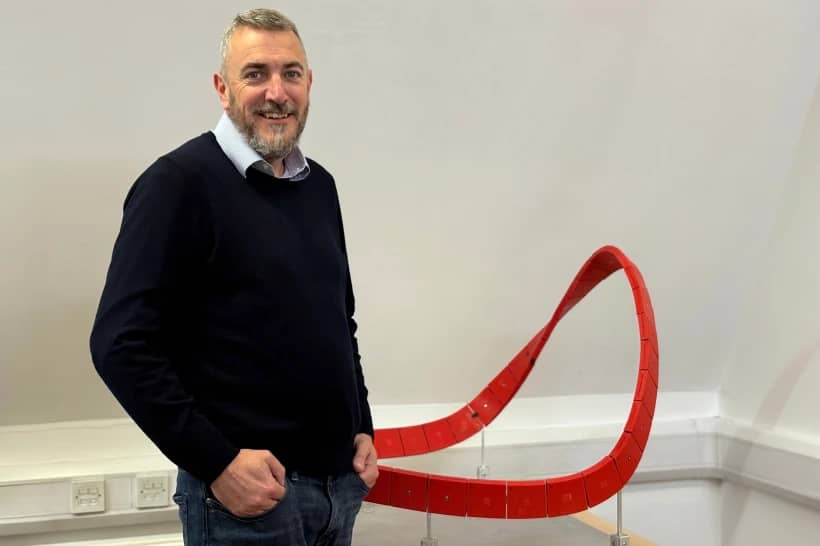PORTSMOUTH, United Kingdom – Legalizing assisted suicide is a false solution to the sufferings of the terminally ill, an English bishop has said in a Palm Sunday letter addressed to the faithful of the Channel Island of Guernsey.
“Someone near the end of life needs emotional support, comfort and care, good pain control, respect and loving communication – not suicide on prescription,” said Bishop Philip Egan of Portsmouth. “Let us redouble our efforts to offer this support, not least to anyone tempted to suicide or a hurried death.”
“I appeal to Catholics to mobilize,” he added in his Palm Sunday letter to the Parish of Our Lady and the Saints of Guernsey. “Speak out against this proposal. It is never permissible to do good by an evil means.” He asked everyone in Guernsey to overturn this “grim proposal” and to “redouble the compassionate care of those who are frail and terminally ill.”
Guernsey, one of the Channel Islands off the coast of Normandy, is a Crown dependency for which the U.K. is responsible. It is part of the Diocese of Portsmouth.
Its chief minister, Gavin St. Pier, has proposed allowing terminally ill patients to commit suicide in a state-funded program with what he says are strict guidelines, the U.K. newspaper The Sunday Express reports. Those eligible under the proposal would include those who are mentally competent, diagnosed with a terminal illness, and given less than six months to live.
St. Pier cited his father’s death at age 77 after heart disease left him bedridden and unable to move, speak, eat, or drink. The minister said his father would have wanted an assisted suicide two to three weeks before his death.
The proposed change aims to give people choice and a sense of control over their death, St. Pier said. The Suicide Act 1961 bars euthanasia, with a maximum sentence of 14 years in prison.
“It would be difficult or impossible to control and it would pose serious societal risks,” he said. “Let there be no death-clinics in Guernsey.”
Egan said the proposal to legalize assisted suicide is “fundamentally subversive, horrific and dangerous, however well-intentioned.” Invoking the expansion of Belgium’s legal assisted suicide to include children, he said “the right to die would soon become the duty to die.”
“It would be an intolerable and utterly immoral demand to ask medical staff, doctors and nurses dedicated to preserving life, to extinguish the life of another human person,” the bishop added. “However carefully crafted the laws might be, assisted suicide would place medics in an impossible dilemma.”
Dr. Brian Parkin, a Guernsey representative of the British Medical Society, told The Sunday Express he was concerned about the proposal.
“Safeguarding the vulnerable is paramount in such a debate,” Parkin said. “The continued investment and development of the high-quality palliative care services in Guernsey involves all health care professionals – and their focus on end of life care plans should be prioritized.”
The local branch of the British Medical Society said that support for aid in dying could have an impact on recruiting and retaining doctors to the island, home to about 63,000 people.
The national organization has opposed assisted suicide since 2006 and supports the current law. The U.K.’s General Medical Council is also clear that encouraging or assisting in a suicide is illegal.
Because the council registers doctors to practice medicine, it is unclear how legal assisted suicide in Guernsey could be carried out by registered doctors, the Jersey Evening Post said.
For Egan, the proposal was an opportunity to reflect on the hardships at the end of life and what Christians believe about suffering and death.
“Frailty, pain and infirmity are a difficult trial for anyone,” he said. “Those who are mentally ill may experience despair and gloom at the problems they face. Others, the terminally ill, become anguished at the loss of function and mobility, feeling keenly a sense of burden on family and even a financial burden on society.”
“Yet let us thank God for the amazing advances that medical science has made and the level of true loving care that can now be given,” Egan added, noting advances in palliative care and pain management.
Further, the bishop said Christians believe in “assisted living, not assisted dying.”
“Death is not pain relief but the beginning of a new, resurrected life with God our Father and Creator,” he said. “This future depends on the state of our soul when we die and this perspective rightly affects our decisions on end of life care and how best to uphold a patient’s personal dignity.”
To help someone to commit suicide or to die prematurely, even when they request it, “can never ever be a compassionate action,” he emphasized. “It is a grave sin.”
Egan’s Holy Week letter stressed the importance of uniting one’s suffering with Christ and finding in him “all the strength, patience and energy we need to sustain our suffering – to ‘carry the cross’ and to turn it to a positive good for others. That is the meaning of Holy Week, when Jesus Christ willingly underwent death at the hands of those who had decided it was better for society for Him to be extinguished.”
“We must not yield to the temptation to apply rapid or drastic solutions, moved by a false compassion or by criteria of efficiency and cost-effectiveness,” he said.
The seriously ill deserve respect, understanding and tenderness “so that the sacred value of their life can shine forth with splendor in their suffering.”

















